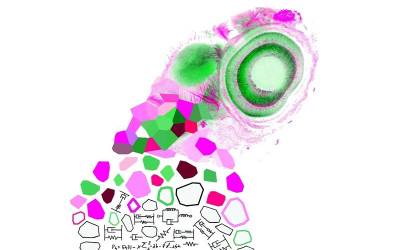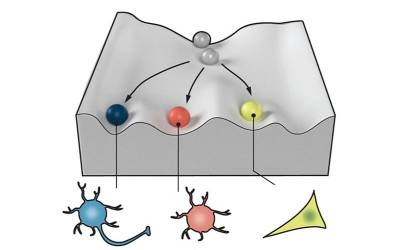Centre for Engineering Life (C≡L)
Mission
The transition of a single cell (the egg) into a complex organism that comprises billions of cells is indisputably one of the most remarkable feats of nature. This transition has fascinated biologists for nearly two centuries. However, it is only very recently that researchers have begun reaching outside of the conventional Life Sciences toolbox to gain deeper insight into how this occurs. The advent of Artificial Intelligence together with our increased ability to draw from skills in the Physical sciences and Engineering is facilitating the creation of novel life-like systems. With this comes ethical and societal issues. C≡L will draw expertise across the Life, Computer, Physical, Engineering and Social Sciences to meet the challenges of understanding and designing life and its impact on society.
Research Themes
C≡L has initially developed the following streams:
- Organelle Networks

Organelles are the basic unit of the cell. They are traditionally viewed as physically separated entities that compartmentalize activity. But this view is being superseded by one where organelles are all intimately connected through regions of close apposition known as membrane contact sites. These nanobridges, typically centred around the endoplasmic reticulum act as focal points for information transfer between organelles that underpin many aspects of cell behaviour including lipid transport and Ca2+ signalling. Links to disease further cement their physiological importance. C≡L strives to define organelle networks and their functional impact in a number of systems and paradigms including embryo development
- Developmental Mechanics

Mechanobiology is an emerging field of research at the interface of biology and physics that focuses on how physical forces and changes in the mechanical properties of cells contribute to development, cell differentiation, physiology, and disease. Research on mechanobiology is one of the most rapidly growing areas however only a small proportion of this research is performed in vivo. C≡L strives to apply emerging in vivo techniques in mechanobiology to studies of embryo development.
- Cell Fate Decisions

The making of correct cell fate decisions is fundamentally important for life. During development, it is critical for the generation of different types of cells at the right numbers, at the right place and at the right time, and during adult life it is critical for processes such as stem cell maintenance and regeneration. However, we are far from understanding how cell fate decisions are made in vivo. C≡L strives to understand how cellular organelle dynamics as well as the mechanical properties of cells contribute to the making of cell fate decisions in more physiological contexts.
- Synthetic Developmental Biology

Synthetic developmental biology is a rapidly evolving field in which innovative approaches are used to uncover and then apply fundamental principles of developing biological systems. The field has been enabled through recent advances in methodology and technology (e.g., long-term in vivo imaging, single-cell analyses, federated learning, artificial gene circuits, self-organizing organoids, stem cells, controllable tissue microenvironments), the adoption of a design-build-test-learn approach from engineering, and the dramatic expansion of fundamental biological knowledge. C≡L strives to apply developmental principles to create and understand biological systems.
- AI and Engineering

Life sciences research is now becoming increasingly data-intensive and almost all modern biosciences research techniques, from microscopy and image analysis through sequencing and bioinformatics, to developing and testing models require handling large amounts of data. New developments in artificial intelligence can revolutionize how we approach scientific problems – creating, dilating and accelerating data analysis pipelines, generating normative models, and providing real-time feedback on experiments and human interactions. C≡L strives to use AI and engineering approaches to generate novel theories and build understanding from this wealth of data.
- Bioethics and Policy

As important as understanding the biological aspect of engineering life, is the formal consideration of the ethical and social aspects of this discipline. Growing tissues, organs or embryos in vitro or manipulating them in vivo, raises important ethical questions related to genetic manipulations of humans, human enhancement, environmental impacts, biosafety, and biosecurity. C≡L strives to address these issues by working with researchers in the social sciences.
 Close
Close

